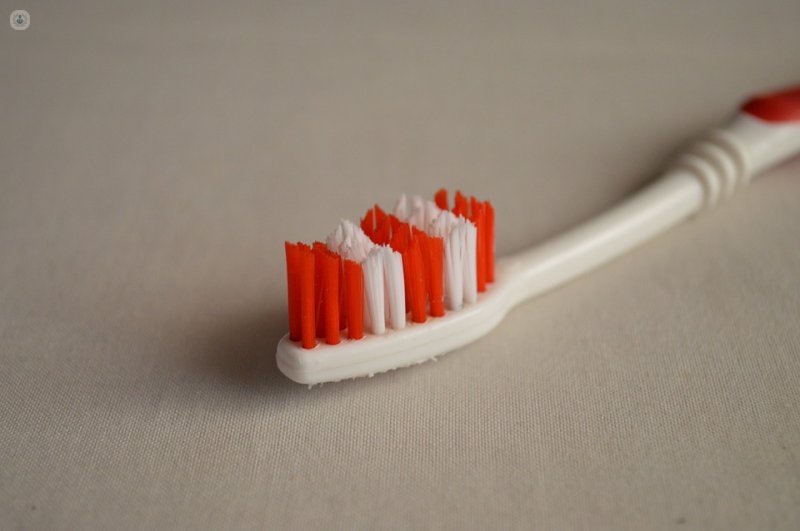Avoid mucositis and periimplantitis to care dental implants
Written by:Implant dentistry is a dental technique used to achieve a healthier, stronger and aesthetic smile, but it is important for the proper maintenance of dental implants so that they do not deteriorate. Avoid major inflammatory problems affecting implants: mucositis and periimplantitis.
Causes of deterioration of dental implants
Dental implants are an excellent solution for the rehabilitation of the teeth when they are lost by decay or periodontal problems. However, with the passage of time and continued use, inflammatory and infectious problems may occur around implants, which can cause discomfort to patients and lead to the loss of dental implants.
There are several risk factors for inflammation around implants:
- inadequate maintenance
- Poor oral hygiene or incorrect brushing technique
- high consumption of snuff
- previous periodontal problems
- Poor quality of the gum around the implants
 Preiimplantitis and mucositis, major infections in implants
Preiimplantitis and mucositis, major infections in implants
Mucositis affects only the gum around the implant and is characterized by redness and symptoms of bleeding. It can be treated with a professional hygiene by a dentist with appropriate instruments and with the use of topical antiseptics.
When inflammation comes to affect the bone, bone loss that greatly compromises the future of dental restorations, being able to produce oozing and bleeding occurs.
The visit to the dentist is necessary when the discomfort appear. With a probing and radiography can diagnose bone loss, we call periimplantitis.
Perimplantitis is an infectious process that can only be treated with Oral and Maxillofacial Surgery. To reverse it is necessary to remove the infected tissue, clean and disinfect the exposed implant, in addition to antibiotic treatment. In many cases, it is possible to stop the infection process and even regenerate bone around the implant, with techniques such as guided bone regeneration with collagen biomaterials and membranes. But in some cases perimplantitis not stop despite surgical treatment, with a progression of bone loss which is the ultimate failure of the implant.
How to avoid deterioration of dental implants
Prevention is key to avoiding these dental problems; constant hygiene and proper maintenance is the most effective measure to prevent periimplantitis.
Early detection helps minimize surgical treatment and improve outcomes. When the problem is detected late and there is a large bone loss, the results of surgery are less predictable, but it is the only treatment that can stop the infection process.
To prevent infectious and inflammatory problems mucositis and periimplantitis frequent maintenance visits with your dentist specialist are recommended to avoid the accumulation of plaque around implants and detect the occurrence of infections as soon as possible.
Edited by Roser Berner Ubasos.


